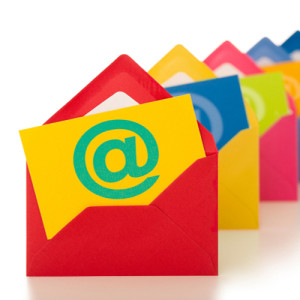October 28th, 2018 by Admin

In the age where technology is practically king, and your business needs to run. We have decided to share with you, apps that can help your business today.
 1. OfficeSuite : Free Office + PDF Editor. OfficeSuite lets you view, edit and create in Word, Excel, and PowerPoint documents, and perform advanced PDF operations. Many find the app easy to use while on the go; however, do keep in mind that many found a need to purchase the paid version to get the best out of it. As of this post, the app rated 4.3 stars out of 5 in GooglePlay.
1. OfficeSuite : Free Office + PDF Editor. OfficeSuite lets you view, edit and create in Word, Excel, and PowerPoint documents, and perform advanced PDF operations. Many find the app easy to use while on the go; however, do keep in mind that many found a need to purchase the paid version to get the best out of it. As of this post, the app rated 4.3 stars out of 5 in GooglePlay.
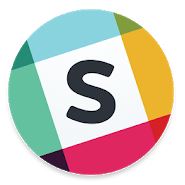 2. Slack: This app brings your team together and maintains communication a breeze. This app helps you check off your to-do list and move your projects forward by bringing your team, conversations, tools, and information you need together. The app is great for big and small business and as of right now it rated 4.4 stars out of 5.
2. Slack: This app brings your team together and maintains communication a breeze. This app helps you check off your to-do list and move your projects forward by bringing your team, conversations, tools, and information you need together. The app is great for big and small business and as of right now it rated 4.4 stars out of 5.
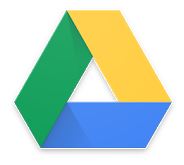 3. Google Drive: This app can help you manage your projects, documents, and photos with ease. Better yet, you can start working on a document from your computer and continue on the go if needed. Google Drive is a safe place for all your files and puts them within reach from any smartphone, tablet, or computer. Currently, is rated 4.4 stars out of 5.
3. Google Drive: This app can help you manage your projects, documents, and photos with ease. Better yet, you can start working on a document from your computer and continue on the go if needed. Google Drive is a safe place for all your files and puts them within reach from any smartphone, tablet, or computer. Currently, is rated 4.4 stars out of 5.
 4. Evernote: This is another note app but with more features! This app can help you jot down a few notes, create to-do lists, scan your hand-written notes, add images, web links and even audio. And best yet, this app can be accessed from your computer or on the phone making it extremely versatile. Rated 4.5 out of 5.
4. Evernote: This is another note app but with more features! This app can help you jot down a few notes, create to-do lists, scan your hand-written notes, add images, web links and even audio. And best yet, this app can be accessed from your computer or on the phone making it extremely versatile. Rated 4.5 out of 5.
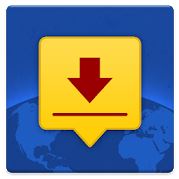 5. DocuSign: Save time, money and the environment with this app. Docusign allows you to send contracts to your clients while on the go. This app also complies with the e-sign act, the documents are encrypted and is ISO 27001 SSAE16 compliant. Rated 4.5 out of 5.
5. DocuSign: Save time, money and the environment with this app. Docusign allows you to send contracts to your clients while on the go. This app also complies with the e-sign act, the documents are encrypted and is ISO 27001 SSAE16 compliant. Rated 4.5 out of 5.
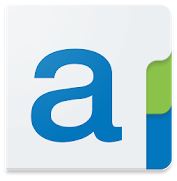 6. aCalendar: We love Google calendars but this app takes it to a new level of organization. It syncs your phone and Google calendar, has agenda and widget view, 48 colors per calendar, moon phases, mini month or graphical week overview in a day and week view. Currently rated 4.4 out of 5.
6. aCalendar: We love Google calendars but this app takes it to a new level of organization. It syncs your phone and Google calendar, has agenda and widget view, 48 colors per calendar, moon phases, mini month or graphical week overview in a day and week view. Currently rated 4.4 out of 5.
 7. Google Ads: With a business, you got to market. Google is usually a good way to get started a managing your Google Ads from your phone is even easier. You can view your campaign’s performance when you are not near your computer and it’s free. Rated 4.3 out of 5.
7. Google Ads: With a business, you got to market. Google is usually a good way to get started a managing your Google Ads from your phone is even easier. You can view your campaign’s performance when you are not near your computer and it’s free. Rated 4.3 out of 5.
 8. Google Analytics: Google tools can be your friend and Google Analytics can help you learn how your website is performing. While on the go, this is a good app to have. It helps you see how your ad campaign is doing and what you can do to improve, for free. Rated 4.5 out of 5.
8. Google Analytics: Google tools can be your friend and Google Analytics can help you learn how your website is performing. While on the go, this is a good app to have. It helps you see how your ad campaign is doing and what you can do to improve, for free. Rated 4.5 out of 5.
 9. ZOOM Cloud Meetings: Growing your business can mean lots of meetings in your future. When you are not able to meet in person, ZOOM Cloud can help. This app brings video conferencing, online meetings and group messaging into one easy-to-use application. People can connect through the app or via computer. Rated 4.4 out of 5.
9. ZOOM Cloud Meetings: Growing your business can mean lots of meetings in your future. When you are not able to meet in person, ZOOM Cloud can help. This app brings video conferencing, online meetings and group messaging into one easy-to-use application. People can connect through the app or via computer. Rated 4.4 out of 5.
 10. Mailchimp: Chances are, if you have a business you are doing e-mail marketing. Up your game with Mailchimp and manage your e-mail marketing efforts on the go. Rated 4.1 out of 5.
10. Mailchimp: Chances are, if you have a business you are doing e-mail marketing. Up your game with Mailchimp and manage your e-mail marketing efforts on the go. Rated 4.1 out of 5.
App images via Google Play
Posted in Uncategorized Tagged with: Android, Android app, apps, b2b business, boost productivity, business, calendar, evernote, google, Google Apps, google drive, google play, mailchimp, productivity, slack, zoom
May 9th, 2014 by Elma Jane
Email is an indispensable part of running any business, it is so important. It’s often the best and least intrusive way to communicate with employees, colleagues and collaborators. Not all email platforms are equal, it’s important to choose one with the right email service and features your business need, also to avoid overpaying for features that you don’t need.
Factors to consider before settling on an email platform for your business.
Bonus Features
Once you’ve found an email service that covers all the basics, check for additional features that can boost your productivity. Some platforms such as Gmail and Outlook includes integrated video chat. That means you can use a single service for both exchanging messages and meeting remotely, making your day-to-day operations simpler and more efficient. Some email platforms also include instant messaging functionality. Instant messaging is better than email for real-time discussions, since you can exchange numerous short messages in rapid succession. Sending an instant message may be preferable to sending an email if the content of your message is not that important
Collaboration Tools
Good business email platform makes it easier for you to work together with your employees or colleagues. The best platforms include tools to help you collaborate. Services such as Gmail and Outlook include a built-in-calendar as part of your email inbox, in a few simple steps you can share your calendar with others so they can view and edit it on the fly. That can really help with planning and collaboration. Email threading is another feature that can help you work together with colleagues. Threaded emails make it easier to follow long exchanges because replies appear one after another in a single thread, instead of being spread throughout your inbox in the order they were received.
Free or Paid??
One thing you can’t get with a free Web mail service is the ability to use your brand’s name as part of your email address. Registering for a free Gmail account gives you an email address like [username]@gmail.com; but by subscribing to Google Apps for Business, you can secure an email address that reads [username]@[yourbusiness].com. In most cases, you’ll need to already own your own Web domain in order to use it as part of your email address, but registering a domain can cost as little as $10 per year. Services such as Microsoft Office 365, give you your own domain name without the need to pay additional hosting fees.
Security
Whether you pay for email or use a free service, you’ll want tight security for your business inbox especially if running your business involves the exchange of private client data and other sensitive data can be attached to your email account, such as bank account numbers and tax returns. Even more than with your personal email, it’s important to keep cyber criminals out of your business account. Before settling on an email service, check for common-sense security measures such as spam and phishing filters. Support for two-factor authentication is also important. The feature helps keep outsiders out of your inbox by requiring users to have two pieces of information to sign in. The first is your regular password and the second is a freshly generated code sent to either your mobile phone or a second email address. Other security features to check for include built-in antivirus measures to keep malware off your computer, which is especially important if you download a lot of attachments. Whether or not it’s important for you (and any employees) to have a branded email address is ultimately up to you. An email address that includes your own domain name can potentially boost the perceived credibility of your business. On the other hand, a generic email address might be fine for the smallest businesses, especially if you are a sole proprietor.
Storage Space
A branded email address isn’t the only advantage of a paid email service. Paid platforms offer plenty of other perks, such as expanded cloud storage for email and other files. Many free email services offer limited storagespace, forcing you to delete messages when your inbox gets full. If you run a small business that relies heavily on email and you prefer to archive messages rather than delete them, your inbox can fill up in a hurry. By subscribing to a paid service, you can gain access to a much bigger inbox. There are a few other related concerns to consider. The maximum size of an email attachment varies widely between different services, with some services capping attachments at 10GB and others letting you send huge files up to 300GB or more, as long as the file is already uploaded to the cloud.
Posted in Best Practices for Merchants Tagged with: antivirus, bank account, business account, chat, client data, cloud, code, computer, data, domain, email, email address, email inbox, email platforms, email service, Email threading, gmail, Gmail account, Gmail and Outlook, Google Apps, hosting, hosting fees, Instant messaging, Malware, messaging, Microsoft, Microsoft Office, mobile, mobile phone, password, personal email, phishing filters, phone, platforms, Security, security features, spam, spam and phishing, tax, tax returns, threading, video chat, Web domain, Web mail, Web mail service

 1.
1.  2.
2.  3.
3.  4.
4.  5.
5.  6.
6.  7.
7.  8.
8.  9.
9.  10.
10. 